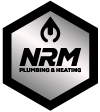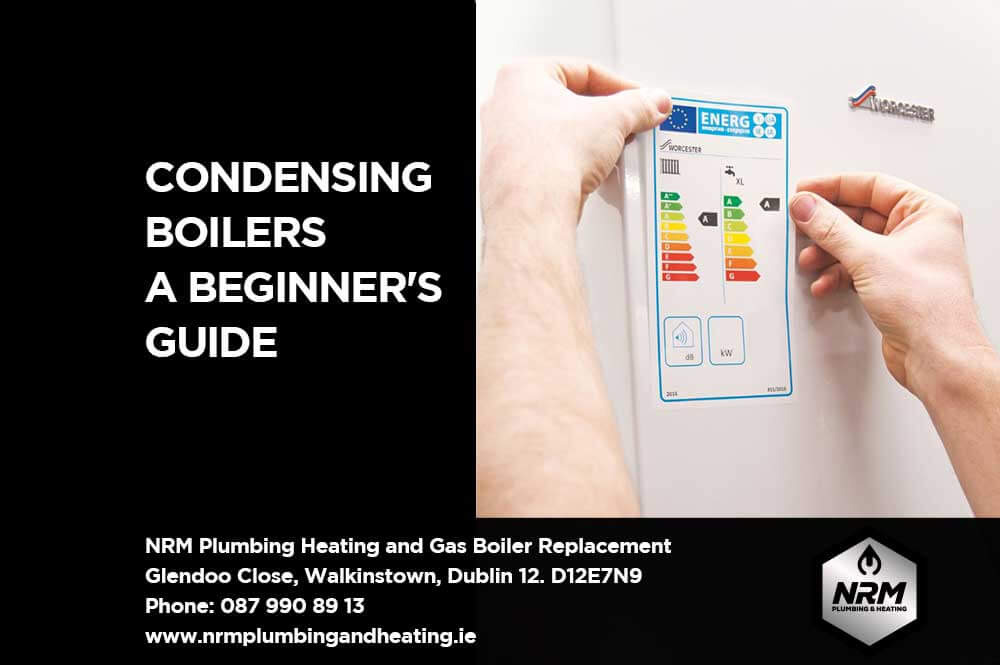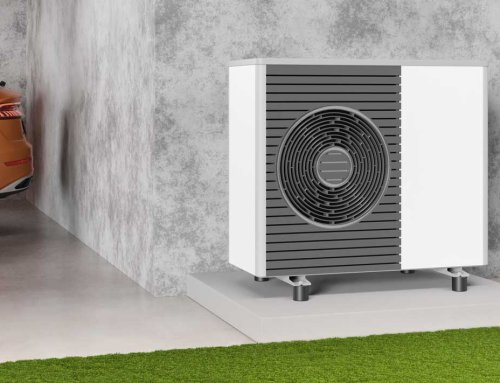Table of contents
Condensing boilers are a highly efficient type of heating system (More info on – 10 Top tips to ensure that your home & heating system is ready for winter) that have become increasingly popular in recent years. Unlike traditional boilers, which lose a significant amount of heat to the outside air during the combustion process, high efficiency boilers are designed to capture as much of this heat as possible, resulting in lower fuel costs and greater energy efficiency. In this article, we will provide an overview of how condensing Viessmann or similar boilers work, their benefits, and some key considerations when choosing and maintaining these types of heating systems. (More info on – What is a condensing boiler ?)
How do condensing boilers work?
Condensing boilers work by extracting heat from the combustion process that would normally be lost to the outside air. They do this by using a secondary heat exchanger to capture heat from the hot exhaust gases that are produced when natural gas or propane is burned. This captured heat is then used to heat the water that is circulated through the heating system. Because they are designed to capture more of the heat produced during combustion, condensing boilers are significantly more energy-efficient than traditional boilers.
Benefits of condensing boilers
There are many benefits to choosing a condensing boiler for your home or building. Here are a few of the most important:
-
-
- Energy efficiency: As mentioned earlier, condensing Worcester Bosch or similar boilers are highly efficient, with some models boasting efficiency ratings of up to 98%. This means that less fuel is required to achieve the same level of heating as a traditional boiler, resulting in lower fuel costs and a reduced environmental impact.
- Environmental friendliness: Because they use natural gas or propane as their fuel source, condensing boilers are a cleaner and more environmentally friendly option than oil-fired boilers. Additionally, the high energy efficiency of these systems means that they produce fewer greenhouse gas emissions than traditional boilers.
- Cost savings: Although the upfront cost of a condensing boiler may be higher than that of a traditional boiler, the increased energy efficiency can result in significant cost savings over time. Additionally, many utility companies offer rebates or other incentives for homeowners and building owners who install high-efficiency heating systems.
- Quiet operation: High efficiency boilers are known for their quiet operation, which can be a significant benefit in homes or buildings where noise levels are a concern.
- Durability: Because condensing boilers are designed to be highly efficient, they typically operate at lower temperatures than traditional boilers. This can result in less wear and tear on the system over time, leading to greater durability and a longer lifespan.
-
Choosing a condensing boiler
If you are considering a high efficiency boilers for your home or building, there are several factors to consider:
-
-
- Size: It is important to choose a condensing boiler that is appropriately sized for your heating needs. A system that is too small will not be able to heat your home adequately, while a system that is too large will be wasteful and inefficient.
- Efficiency rating: Look for a condensing boiler with a high-efficiency rating. The higher the rating, the more energy-efficient the system will be.
- Fuel source: As mentioned earlier, condensing boilers typically use natural gas or propane as their fuel source. Make sure that you have access to a reliable supply of these fuels in your area.
- Cost: High efficiency boilers can be more expensive than traditional boilers, but the higher energy efficiency can result in lower fuel costs over time. Consider your budget and long-term energy savings when choosing a system.
-
Maintaining a condensing boiler
Like all heating systems, high efficiency boilers require regular maintenance to keep them running efficiently. Here are some key maintenance tasks to keep in mind:
-
-
- Annual inspection: Have a licensed professional inspect your condensing boiler once a year to check for any leaks, malfunctions, or potential safety hazards. They can also clean the heat exchangers and check for any signs of wear and tear.
- Cleaning: The secondary heat exchanger in a condensing boiler can become clogged with debris over time, which can reduce the system’s efficiency. It is important to have this heat exchanger cleaned periodically to keep the system running at peak efficiency.
- Flue gas analysis: A flue gas analysis measures the level of carbon monoxide, carbon dioxide, and oxygen in the exhaust gases produced by the boiler. This analysis can help identify any potential issues with the system and ensure that it is running safely and efficiently.
- Condensate drain: Because condensing boilers produce condensate during the combustion process, they require a drain to dispose of this water. Make sure that the condensate drain is functioning properly and is not blocked or clogged.
- Thermostat: Check your thermostat periodically to ensure that it is working properly and is set to the appropriate temperature. A malfunctioning thermostat can cause your boiler to run unnecessarily, which can waste energy and increase your fuel costs.
-
High efficiency boilers are an excellent option for homeowners and building owners who are looking for an energy-efficient and environmentally friendly heating system. With their high-efficiency ratings, lower fuel costs, and quiet operation, condensing boilers can provide reliable and cost-effective heating for many years. When choosing a condensing boiler, it is important to consider factors such as size, efficiency rating, fuel source, and cost. Regular maintenance and inspection by a licensed professional can help ensure that your high efficiency boilers is running safely and efficiently.
High Efficiency Boilers – Frequently Asked Questions
- What is a condensing boiler?
A condensing boiler is a type of heating system that is designed to extract as much heat as possible from the combustion process. This results in greater energy efficiency and lower fuel costs compared to traditional boilers. (More info on – What are the different types of gas boilers?)
- How do condensing boilers work?
High efficiency boilers work by using a secondary heat exchanger to extract heat from the exhaust gases produced during combustion. This captured heat is then used to heat the water that is circulated through the heating system.
- Are condensing boilers more energy-efficient than traditional boilers?
Yes, condensing boilers are significantly more energy-efficient than traditional boilers. They can be up to 98% efficient, compared to 70-80% efficiency for non-condensing boilers.
- What fuel source do condensing boilers use?
High efficiency boilers typically use natural gas or propane as their fuel source. This makes them a cleaner and more environmentally friendly option than oil-fired boilers.
- How do I choose the right size condensing boiler for my home or building?
It is important to choose a high efficiency boilers that is appropriately sized for your heating needs. A system that is too small will not be able to heat your home adequately, while a system that is too large will be wasteful and inefficient. A licensed professional can help you determine the appropriate size for your heating needs. (More info on – How to Choose the Right Size Viessmann Gas Boiler for Your Home)
- How much do condensing boilers cost?
High efficiency boilers can be more expensive than traditional boilers, but the higher energy efficiency can result in lower fuel costs over time. Additionally, many utility companies offer rebates or other incentives for homeowners and building owners who install high-efficiency heating systems.
- What maintenance is required for a condensing boiler?
Like all heating systems, high-efficiency boilers require regular maintenance to keep them running efficiently. This includes things like annual inspections, cleaning of the heat exchangers, and checking for any leaks or malfunctions. A licensed professional can help you with the maintenance of your high-efficiency boilers. (More info on – What Is The Best Heating System For A House In Ireland ?)
Related searches: How do condensing boilers work?, Benefits of condensing boilers, Choosing a condensing boiler, Best condensing boilers, Most energy-efficient boilers, Cost savings with condensing boilers, Maintaining a condensing boiler, Condensing boilers vs. traditional boilers, Natural gas condensing boilers, Propane condensing boilers, High-efficiency heating systems, Green heating solutions, HVAC systems for homes and buildings, Energy-efficient home heating options.
Ever wondered about replacing a gas boiler….Check out our latest blog post for details. Read our latest blog post for details









